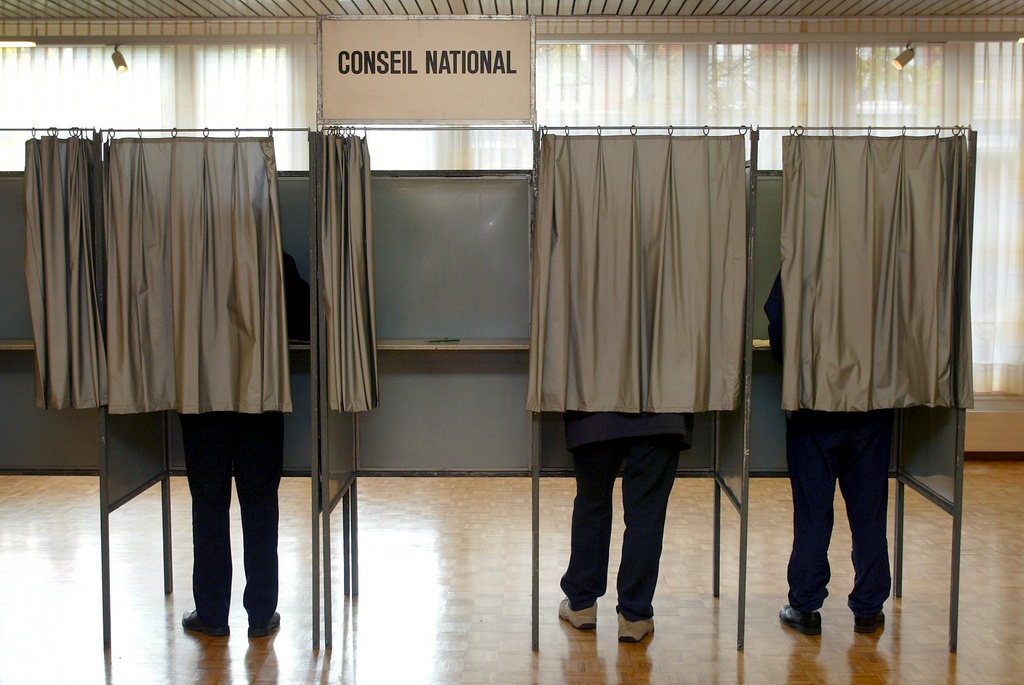
Voters reject tougher smoking laws

Voters have rejected tougher anti-smoking laws proposed to curb the effects of second-hand smoke on waiting staff. An initiative for better tax breaks for elderly homeowners was also turned down.
However, a proposal to promote musical education won approval by an overwhelming majority according to final results.
Two out of three voters rejected the Lung League’s initiative for a uniform nationwide law banning smoking in indoor working places, but allowing cantons to state exceptions.
Supporters of stricter regulations wanted to ban smoker’s lounges with waiter service and special bars or cafes for tobacco users. They said an estimated 10,000 people working in the restaurant sector faced serious health risks because they were subjected to second-hand smoke.
The Lung League – supported by health organisations, trade unions and centre-left parties – collected enough signatures to force a national vote on the issue. However, the business community, centrist and rightwing parties as well as the government came out against the initiative.
Opponents argued that the proposed restrictions went too far, threatening the interests of the restaurant sector, and interfering with the cherished federalist system giving cantons a large degree of autonomy. They said it did not make sense to amend a hard-fought compromise decided by parliament three years ago.
Ahead of the vote eight of the cantons, particularly in French-speaking western Switzerland, had banned smoking from restaurants and bars altogether. They only tolerate special rooms without waiter service.
The emotional campaign in the run-up to voting day was marked by allegations of deliberate misinformation by opponents of the initiative.
Home ownership
In another issue before voters, the initiative to grant retired property owners special tax breaks had only gained the official support of the rightwing People’s Party and the Association of Small- and Medium-Sized Enterprises.
Supporters said the current law punished elderly people who paid off their mortgages as they could no longer claim deductions on their tax form.
The leading Home Owner’s Association called for the abolition of the ‘rental value’ of property – a uniquely Swiss system based on the presumed income if the accommodation was rented out.
Opposition from all the other parties, the government and notably also the cantons focused on what they considered unjustified tax privileges for a small group of the population, as most people in Switzerland live in rented accommodation.
It is the third time this year voters have decided on an aspect of home ownership. The other proposals aimed at boosting home ownership were clearly rejected.
According to early results, the issue divided the cantons, failing by a narrow majority.

More
People’s initiative
Musical schooling
Virtually no campaign had been staged by supporters or opponents of the initiative for the planned promotion of music teaching at schools and its improved coordination among the cantons, which have broad powers on educational matters.
Most parties, except for the People’s Party and the Radicals, came out in favour of a constitutional amendment.
The vote had always been expected to pass smoothly. Nearly all cantonal results showed it to be approved by voters.
It was a watered-down version of an initiative launched in 2007 aimed at giving the state a bigger role in musical education, later withdrawn in favour of a proposal by parliament and the government.
Political scientists expected a below-average turnout – between 40 per cent and 45 per cent – for the third nationwide ballots this year.
The votes were the third in a series of four ballots scheduled this year.
About 5.1 million citizens were eligible to take part in the ballot.
As part of ongoing trials with e-voting, some 164,000 voters including registered Swiss expatriates could cast their ballot online.

In compliance with the JTI standards
More: SWI swissinfo.ch certified by the Journalism Trust Initiative






























You can find an overview of ongoing debates with our journalists here . Please join us!
If you want to start a conversation about a topic raised in this article or want to report factual errors, email us at english@swissinfo.ch.